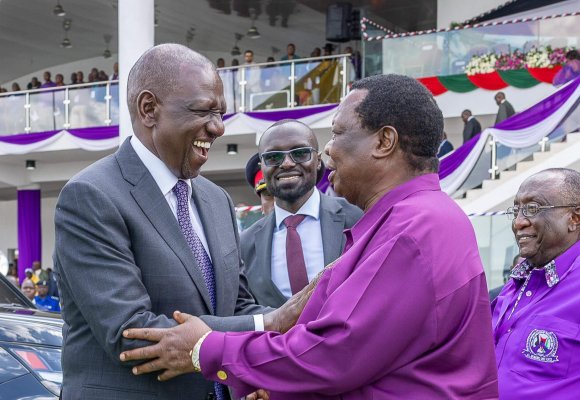|
LISTEN TO THIS THE AFRICANA VOICE ARTICLE NOW
Getting your Trinity Audio player ready...
|
Claudia Sheinbaum was Monday announced elected as Mexico’s first woman president in a historic landslide victory. Mexico’s official electoral authority reported that preliminary results showed the 61-year-old former mayor of Mexico City securing between 58% and 60% of the vote in Sunday’s election. She led her main rival, businesswoman Xóchitl Gálvez, by approximately 30 percentage points.
Sheinbaum will succeed her mentor, outgoing President Andrés Manuel López Obrador, on October 1. A former energy scientist, she has pledged to continue the welfare programs and “advances” initiated by Mr. López Obrador, which have made him popular.
In her victory speech, Ms. Sheinbaum emphasized the significance of her win, stating, “For the first time in the 200 years of the [Mexican] Republic, I will become the first woman president of Mexico.” She noted that this achievement was for all women, not just herself. She added, “I won’t fail you,” and thanked Ms. Gálvez, who conceded defeat.
Prior to running for president, Ms. Sheinbaum served as mayor of Mexico City, a key political position in the country. Her background includes an illustrious career as a scientist, with her Jewish maternal grandparents having fled from Bulgaria during the Nazi era, and her paternal grandparents originating from Lithuania. She studied physics and earned a doctorate in energy engineering, spending years researching Mexican energy consumption patterns and becoming an expert on climate change. Her student activism led to her appointment as Mexico City’s secretary of the environment under Mayor Andrés Manuel López Obrador.
In 2018, she became the first female mayor of Mexico City, a role she held until 2023 when she resigned to run for president. The election between Ms. Sheinbaum and Ms. Gálvez marked a significant moment for women in Mexico.
Despite celebrations, the campaign was marred by violent attacks, with more than 20 local candidates killed across Mexico. Ms. Gálvez criticized the government and Ms. Sheinbaum for the violence, promising to be a president who confronts crime, though she provided few details on tackling the criminal cartels behind much of the violence.
After Ms. Sheinbaum’s victory became clear, Gálvez called her, and expressed hope that she could address Mexico’s severe problems. Sheinbaum acknowledged the need to tackle the roots of violence and promised to invest in welfare programs to prevent the recruitment of young Mexicans by criminal groups.
Regarding relations with the United States, Sheinbaum committed to a relationship of friendship, mutual respect, and equality, while vowing to defend Mexicans living and working in the US. Relations had been strained under López Obrador, who, unable to run for a second term, supported Ms. Sheinbaum, boosting her campaign with his popularity and approval rating close to 60%.











LEAVE A COMMENT
You must be logged in to post a comment.